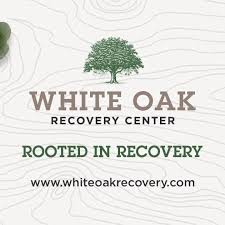No More Mistakes with Flour Mill Machine Manufacturer
Mar 11 2023


Why DBT Might Be the Missing Link in Your Mental Health or Addiction Recovery
If you’ve been struggling with your mental health or battling addiction, and it feels like the standard treatments just aren’t enough you're not alone. I’ve heard it time and time again: “I’ve tried everything, but nothing sticks.” Maybe talk therapy helped a little, maybe medication took the edge off, but the deep, lasting changes? Still out of reach. That’s where DBT Dialectical Behavior Therapy can quietly, yet powerfully, change the game.
DBT isn’t just another therapy trend. It’s a lifeline for people who feel like they’re stuck on a roller coaster of emotional highs and lows, self-destructive habits, or relationships that keep falling apart. And if that sounds familiar, DBT might be the missing link in your healing journey.
What Is DBT, Really?
Dialectical Behavior Therapy was developed by psychologist Marsha Linehan in the 1980s, originally to treat borderline personality disorder. But over time, DBT has expanded into something much broader helping people with depression, substance use, anxiety, PTSD, and more.
At its core, DBT is all about balance: it teaches you how to hold two truths at once. For example: “I’m doing the best I can” and “I need to do better.” That kind of thinking shifts everything. It’s not about being perfect it’s about being aware, present, and capable of change.
Why Traditional Therapy Might Not Be Enough
Let’s be honest standard therapy has its limits. You talk about your problems, maybe get some insight, but when you're in the heat of the moment spiraling with anxiety, about to relapse, or screaming at someone you love it can feel like none of it matters.
DBT equips you with real-time skills that work in the moment not just when you're sitting on a therapist’s couch. You learn how to regulate your emotions, tolerate distress, be more mindful, and communicate better. These aren’t vague ideas. They’re practical tools you can use every day.
The Four Pillars of DBT Skills
Here’s what you’ll typically learn in a DBT program:
It’s the foundation of everything in DBT. Mindfulness teaches you how to notice what’s happening both inside and outside of you without judgment. You learn to respond, not react.
Life is messy. DBT helps you survive emotional crises without making things worse like using drugs, lashing out, or shutting down.
Ever feel like your feelings are too big, too fast, or too frequent? DBT helps you name those emotions, understand what’s behind them, and gain some control over how you express them.
Whether it’s asking for what you need or saying no without guilt, DBT teaches you how to build healthier, more respectful relationships.
Why DBT Is Especially Powerful in Addiction Recovery
Addiction is rarely just about the substance. More often, it’s about numbing pain, coping with trauma, or managing emotions that feel unmanageable. That’s why DBT and addiction recovery go hand in hand.
In fact, the Substance Abuse and Mental Health Services Administration recognizes DBT as an evidence-based treatment for co-occurring disorders. If you’re in recovery but find yourself constantly triggered or emotionally dysregulated, DBT could be the tool that finally helps you stay grounded and sober.
Finding the Right Program
You don’t have to go it alone. If you’ve ever typed “dbt near me” into a search engine, you're already halfway there. But knowing when and where to begin is key. This guide can help you decide when to consider DBT near you, especially if you’re in a place where emotions or urges keep hijacking your progress.
Remember: not all DBT programs are created equal. The most effective ones are structured, led by trained therapists, and include both group and individual sessions. If possible, look for programs that integrate DBT with other aspects of care like trauma therapy, medication support, or family involvement.
As someone who has witnessed the transformative power of DBT, I’ll leave you with this quote from Marsha Linehan herself:
“People with the most challenging problems are often those with the most potential.”
Maybe no one has told you that before. Maybe you’ve always felt “too much” or “too broken.” But the truth is, you’re not either of those things you’re just waiting for the right kind of help.
Healing doesn’t happen overnight, and it doesn’t happen in isolation. But with the right support and the right tools like those taught in DBT you can start moving toward a life that feels more stable, more empowered, and more your own.
You don’t have to be in crisis to start. You just have to be ready for something different.
Social Media Marketing Strategies for Beginners
Mar 14 2023
(0) Comments